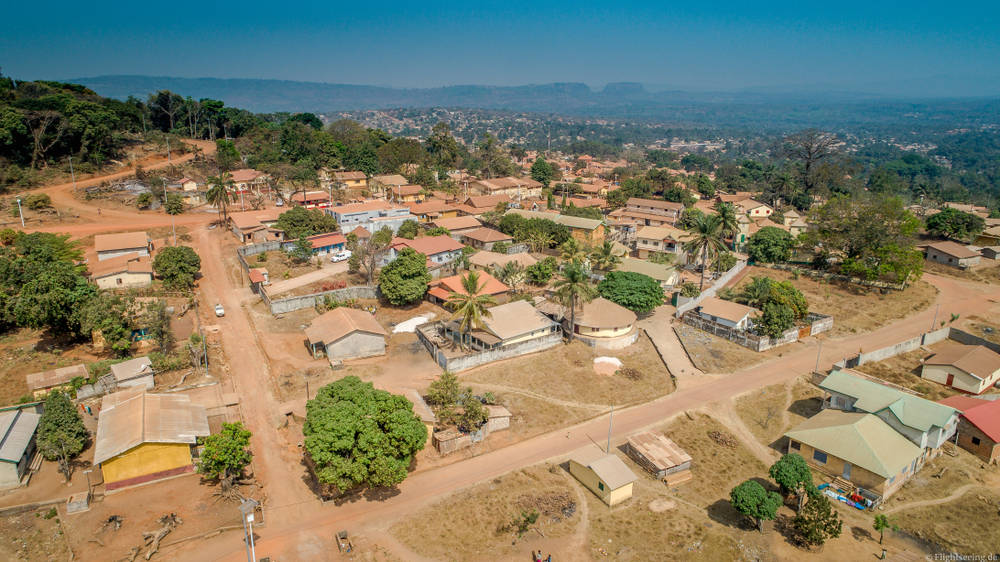We use Cookies. Read our Terms
- News
- Mobilizing resources to reduce poverty in Guinea
Mobilizing resources to reduce poverty in Guinea

Photo: Shutterstock
An integrated rural development project is breathing new life into the farming communities of Guinea’s Télimélé province.
If one had to select two words to describe Guinea, one would need to choose “contradictions” and “challenges.” While the country possesses almost half of the world’s bauxite reserves (the ore from which aluminum is derived) in addition to significant iron, gold, and diamonds, 50 percent of its population lives below the poverty line.
Guinea’s extensive economic potential is constrained by the deficiencies of a vastly inadequate infrastructure, notably rural roads, irrigation and water supply. With almost three quarters of the population under 35, unemployment is also a serious problem. Around one-third of young Guineans are out of work due, among other factors, to the gap between adequate training and the needs of the economy.
Despite its rich mineral resources, it is agriculture rather than mining that is Guinea’s most important economic sector, employing 84 percent of the labor force and contributing 26 percent of GDP in 2011. As such, it plays a prominent role in the welfare of Guinean society.
Abundant resources for food security
Favored by a generally mild climate, Guinea produces mainly rice, corn, peanuts, cassava, fruit, coffee, cotton and palm oil. Cash crop yields are potentially plentiful and sufficient to meet the nutritional needs of the population. However, in order to attain total food security, some investment in this sector is required.
The fertile soil of Guinea and the country’s favorable climate are eminently suitable for the development of a wide range of crops. It is a potential that remains untapped, largely due to the weakness of the country’s human resources. This represents an overwhelming obstacle to development, further reducing the chances of the country meeting the Millennium Development Goals by the target date of 2015.
Since its inception, OFID has contributed a total of US$107m to fight poverty in Guinea, by financing transport, water supply and sewerage, education, industry, agriculture and agroindustry projects. Financed jointly with the Islamic Development Bank and the Guinean government, the Télimélé Integrated Rural Development project is a good example of OFID’s monetary support to the country. The Télimélé region is a poor province of around 280,000 inhabitants, where agriculture is dominated by rain-fed crop production.
The aim of this multifaceted project, to which OFID contributed a loan of US$5m, was to improve food security and living standards by increasing agricultural production and improving access to health and education. It comprised several activities, such as the development of 675 hectares of land through the installation of an irrigation network and drainage system, the construction of leveled plots and a small dam, plus the establishment of farmers’ associations and training programs.
Improved infrastructure to boost production
As accessibility to the area was extremely poor, thus limiting marketing opportunities, the project also allowed for the construction of 182 km of feeder roads to link the main production centers to the chief markets and villages in the region.
Belkacem Ouzrourou, Acting Director of the Africa region at OFID, explained that despite the long delays experienced during implementation because of the socio-political crisis experienced by the country during the period 2007-2010, most of the planned activities had been completed by end-2012. “It is expected that agriculture production in the project area will increase significantly,” he said, indicating that yields could jump from 1.6 t/ha (tons per hectare) to 4 t/ha for rice production and from 1.1 t/ha to 3.5 t/ha for maize.
Another component of the project was the drilling of 90 boreholes and 20 wells to boost access to potable water supplies, since access to safe water was available to just over half the population of Télimélé province. The construction of ten new primary schools and the construction and equipping of two major health centers and ten health units was also part of the project designed to improve the wellbeing of Guineans.
Through the creation of jobs and broadening of educational opportunities, rural areas could soon become an employment resource for young people, making real Guinea’s motto: “Travail, Justice, Solidarité” (Work, Justice, Solidarity).